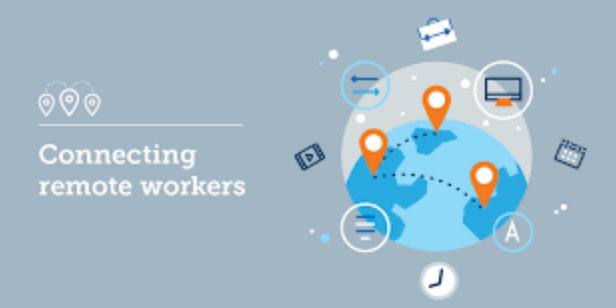Remote work is location-independent, meaning people from small towns and rural communities can land job opportunities if there aren’t enough local jobs. Remote working involves flexible working arrangements that allow employees to work from anywhere. It comes with accommodating schedules to ensure work-life balance, keeping workers happier and more productive. Being a full remote worker also means that you can live as a digital nomad while enjoying a fulfilling career.
Hiring remotely offers employers a talent pool, allowing them to choose the best. Considering how expensive office spaces are, remote working saves companies money they would otherwise spend renting or building bigger offices and saves on utilities. Below are five tips for effective remote working.
Invest in high internet speed
Internet access is integral to the success of remote working, which is why you should choose a reliable internet service provider. You can get spectrum internet services that suit all your internet needs at an affordable cost. This ensures that you can effectively communicate without losing connection, exchange ideas, and get advice, if need be, promoting collaboration.
You should also consider getting other tools and technologies essential for your work. For example, you can buy some noise-canceling headphones to enable you to work from anywhere regardless of the noise levels.
Maintain a dedicated office space
Creating a dedicated workspace allows you to stay focused, gets you into a working mode mentally, minimizes distractions, and helps you achieve a work-life balance. To create this space, find a location that gives you privacy and organize it. Get a suitable office chair and desk to save you from back pain if you have to sit for long hours. With a separate working area, you can minimize distractions and concentrate on your work, increasing productivity.
Be keen on communication
When managers communicate with their remote teams, it keeps the staff apprised of their deadlines, work-related challenges, available resources, work schedules, and work expectations. This gives managers an idea of how their staff wants to remain productive. They should also consider the communication tools that best suit the team’s culture, including texts, emails, video chats, phone calls, and intranet channels. Talk to your employees to learn how they’d like to be managed when working remotely.
Create connections and time for your remote team
When working remotely, employees may feel disoriented and isolated, necessitating building connections with them. Develop various ways to create connections with your remote team and introduce an open-door policy to make yourself available to answer or respond to any pressing issues they may have. Consider sharing feedback, opening a chat channel, or inviting them for coffee shows solidarity and shows them that they aren’t alone.
Resist the temptation to micromanage
Maintaining productivity, especially for remote work, is essential. However, micromanaging may result in a toxic working environment that suffocates workers and hinders creativity. To better manage your remote staff, make them feel trusted, not controlled. Give them autonomy and trust they’ll deliver according to or beyond your expectations. You can also create a check-in schedule to spend time with your employees regularly.
This allows them to address any concerns they may have and other non-pressing issues. This enables you to keep an eye on your staff without micromanaging them. You can also introduce project management tools for effective project management.
Endnote
Remote working is beneficial for both employers and employees. With the right tools, technologies, and guidelines, remote work can be fun, productive, and profitable. Use these tips for effective remote working.







